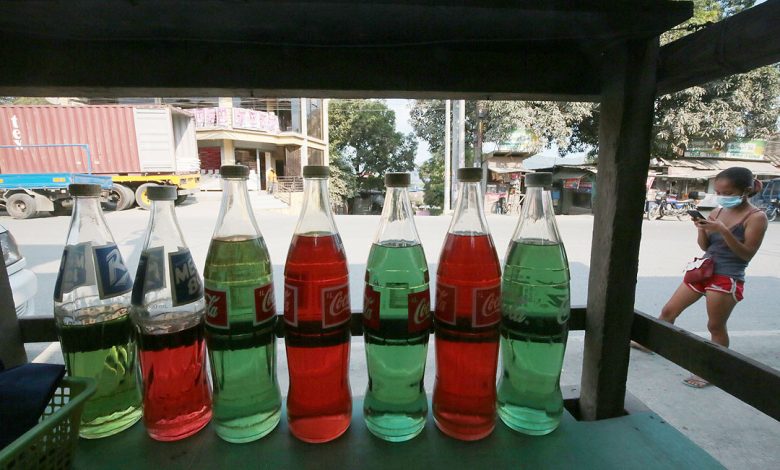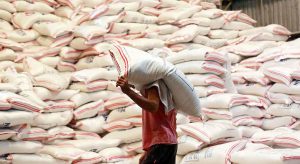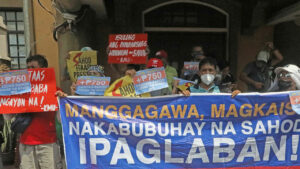PHL moves to cushion oil shock impact

Several bottles are filled with petroleum products in San Jose, Rodriguez, Rizal, March 4. Fuel retailers raised pump prices on Tuesday. — PHILIPPINE STAR/ MICHAEL VARCAS
ECONOMIC MANAGERS approved the implementation of several measures to cushion the impact of the Russia-Ukraine crisis on the Philippine economy, such as temporarily allowing more imports of rice, pork and fish, increasing coal supply, and raising fuel subsidies for public transport drivers.
In a televised Palace briefing on Monday evening, Finance Secretary Carlos G. Dominguez III said he does not expect the Russia-Ukraine crisis to “last very long,” adding the Philippine economy will only be affected because oil and food prices will continue to rise.
“The Philippine economy will likely be collateral damage. It is as if we are hit by a ricocheting bullet,” he said.
“This crisis may increase the prices across several sectors and thereby cause our inflation rate to breach our target, but with the measures that we discussed at the Economic Development Cluster… we are confident that we will be able to keep the inflation within our target range of 2 to 4% and maintain our growth path of 7 to 9% this year,” Mr. Dominguez said.
At the same briefing, Socioeconomic Planning Secretary Karl Kendrick T. Chua detailed the 14 measures approved by the Economic Development Cluster that would help ease the impact of the war between Russia and Ukraine on the economy.
This includes increasing imports of coal, corn, rice, pork, fish, sugar, and wheat.
He told President Rodrigo R. Duterte that economic managers will request for the issuance of an executive order to reduce tariffs.
The government can increase its supply of coal and lower prices by removing the most favored nation tariff rate of 7% until December, Mr. Chua said.
He also said there should be a continuous release of sanitary and phytosanitary import clearances for rice, and that the lower tariff rate for pork be extended.
Tariff rates for corn should be lowered, while direct importation of half of food manufacturers’ sugar stock should be allowed, Mr. Chua added.
He said the economic team recommended legislation that will increase the buffer stock of petroleum to 45 days from 30 days. A new law could also raise the buffer stock of liquefied petroleum gas (LPG) to 15 days from seven, he added.
“When we expand the buffer stock, we can ensure more adequate supply and meet demand in case there is a global shortage,” Mr. Chua said.
Mr. Chua said shifting the entire country to Alert Level 1, the least strict pandemic restrictions, would help strengthen the domestic economy.
“While we cannot prevent the risks coming from the global perspective, we can strengthen our domestic economy to provide the people with more jobs and opportunities,” he said.
The cluster also recommended that the government increase the fuel subsidy program for public utility vehicles to P5 billion from P2.5 billion.
“The first tranche we will give in March, the second tranche in April,” Mr. Chua said.
The additional subsidy can be funded through excess tax collections in March, National Economic and Development Authority (NEDA) Undersecretary Rosemarie G. Edillon said at a public briefing on Tuesday.
In addition, the cluster supports Senate Bill No. 139 or the Philippine Livestock Industry Development Act establishing a development fund for the sector to increase daily production.
Other recommendations by the economic team included allowing foreign ownership in micro-grid, solar, wind and tidal energy; promoting energy conservation; suspending pass-through fees charged by local governments; and including renewable energy and agriculture into the Strategic Investment Priority Plan, which details priority industries for government incentives. — Jenina P. Ibañez




